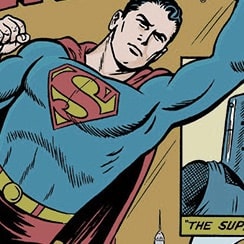Denemek ALTIN - Özgür
Energy & Power - EP_23_01 (Energy & Power Vol 23 Issue 03 June 16, 2025)

Magzter GOLD ile Sınırsız Olun
Okumak Energy & Power sadece bir abonelikle 9.000'den fazla diğer dergi ve gazeteyle birlikte
Kataloğu GörüntüleYalnızca Energy & Power dergisine abone olun
İstediğiniz zaman iptal edebilirsiniz.
(Hiçbir Taahhüt Yok) ⓘAbonelikten memnun kalmazsanız, aboneliğin başlangıç tarihinden itibaren 7 gün içinde help@magzter.com adresine e-posta göndererek tam para iadesi alabilirsiniz. Soru sorulmaz - Söz veriyoruz! (Not: Tek sayı satın alımları için geçerli değildir)
Dijital Abonelik
Anında Erişim ⓘMagzter web sitesi, iOS, Android ve Amazon uygulamalarında anında okumaya başlamak için hemen abone olun.
Doğrulanmış Güvenli
ödeme ⓘMagzter, doğrulanmış bir Authorize.Net satıcısıdır. Daha Fazla Bilgi Edinin
Bu sayıda
For anyone living in Dhaka, the daily struggle with traffic and toxic air has become a grim routine. From schoolchildren to office workers, everyone breathes in the same dust and diesel fumes. That’s why the government’s new plan to introduce 400 electric buses by 2030 feels like a breath of fresh air—literally and figuratively. This initiative, backed by the World Bank, could mark a turning point for a city that has long suffered from neglect in public transport planning. Cleaner, quieter electric buses won’t just reduce emissions, they are expected to offer a safer, more dignified way to commute for millions. It is a much-needed step toward making Dhaka more livable. But let us be honest—Dhaka has seen plenty of big promises before. What matters now is how this plan is carried out. Will outdated, smoke-belching buses finally be taken off the roads? Will commuters finally get relief from the chaos? Will the politics that often derail progress be kept at bay? Experts are right to urge caution: start small, get it right, and then scale up. Local capacity must also be built so that Bangladesh is not forever dependent on imports. And let us not forget the workers—drivers, mechanics, and helpers—who need to be part of this transition. This is not just a bus project. It is a chance to clean the air, modernize transport, and give Dhaka’s people a city they can move through and breathe in without harm. Let’s not waste that chance. Energy & Power steps into its 23rd year of publication on 16 June this year. Marking the occasion, we hope to bring out our anniversary issue in September.
Energy & Power Description:
Energy & Power (EP) is the first and only full-fledged fortnightly magazine that deals with the much cried over energy and power sector in Bangladesh. Since its inception in June 16, 2003, EP is working very hard to
a) Develop public consciousness on sustainable and even development of energy sector;
b) Assist the policy makers in assuming pragmatic policies for a balanced development of the energy sector;
c) Continuous supply of information among public; and
d) Develop a group of reporters in this field
Bangladesh is an energy deficit country like other countries in the region and most of the people do not have adequate access to the energy and power. The country is completely dependent on fossil energy source; at the same time, it is one of the most inefficient energy using countries in the world.
It lacks efficiency in planning, management, generation, distribution, load management and even at the end user level consumption.
In spite of the above drawbacks, issues relating to utilization of renewable energy, exploring alternative use of energy, planned use of environment friendly energy are significantly undermined in Bangladesh.
The biggest challenge of Bangladesh is to find a path for balanced growth of its energy sector. Despite its resource constraints, EP dynamically strives to provide theenergy sector with a flow of information and create public awareness; so that policymakers get guidelines and platforms for its sustainable development.
Code of Ethics
EP believes that public enlightenment is the forerunner of justice and the foundation of democracy. The duty of a journalist is to further those ends by seeking truth and providing a fair and comprehensive account of events and issues and professional integrity is the cornerstone of a journalist's credibility. We strive to serve the public with thoroughness and honesty.
The EP editorial policy is to share a dedication to ethical behavior and uphold the zero conflict of interest principles and highest standards of practice.
EP believes in
o Seeking truth and reporting the same
o Minimize harm
Recent Issues

EP_22_24 (Energy & Power Vol 22 Issue 24 June 1, 2024)

EP_21_23 (Energy & Power Vol 22 Issue 23 May 16, 2025)

EP_22_22 (Energy & Power Vol 22 Issue 22 May 1, 2025)

EP_22_21 (Energy & Power Vol 21 Issue 21 April 16, 2025)

EP_22_20 (Energy & Power Vol 22 Issue 20 April 1, 2025)

EP_22_19 (Energy & Power Vol 22 Issue 19 March 16, 2025)

EP_22_18 (Energy & Power Vol 22 Issue 17 March 1, 2025)

EP_22_17 (Energy & Power Vol 22 Issue 17 Feb 16, 2025)

EP_22_16 (Energy & Power Vol 21 Issue 16 Feb 1, 2025)

EP_22_15 (Energy & Power Vol 22 Issue 15 Jan 16, 2025)

EP_22_14 (Energy & Power Vol 22 Issue 14 January 1, 2025)

EP_22_13 (Energy & Power Vol 22 Issue 13 December 16, 2024)

EP_22_12 (Energy & Power Vol 22 Issue 12 December 1, 2024)

EP_22_11 (Energy & Power Vol 22 Issue 11 November 16, 2024)

EP_22_09 (Energy & Power Vol 22 Issue 9 October 16, 2024)

EP_22_08 (Energy & Power Vol 21 Issue 8 October 1, 2024)

EP_22_07 (Energy & Power Vol 22 Issue 7 September 16, 2023)

EP_22_06 (Energy & Power Vol 22 Issue 6 September 1, 2024)

EP_22_05 (Energy & Power Vol 22 Issue 5 August 16, 2024)

EP_22_04 (Energy & Power Vol 22 Issue 4 August 1, 2024)

EP_22_03 (Energy & Power Vol 21 Issue 2 July 16, 2024)

EP_22_02 (Energy & Power Vol 22 Issue 02 July 1, 2024)

EP_22_01 (Energy & Power Vol 22 Issue 01 June 16, 2024)

EP_21_24 (Energy & Power Vol 21 Issue 24 June 1, 2023)

May 16, 2024

May 01, 2024

EP_21_21 (Energy & Power Vol 21 Issue 21 April 16, 2024)

EP_21_20 (Energy & Power Vol 21 Issue 20 April 1, 2024)

EP_21_19 (Energy & Power Vol 21 Issue 19 March 16, 2024)
Special Issues
Related MAGAZINES

Newsweek US

Entrepreneur US

Fortune US

Fast Company

Inc.

Business Traveler US

TradersWorld

CODE Magazine

The BOSS Magazine

PEN WORLD

Writer’s Digest

Farming Magazine

Truck N Trailer

Central Florida Ag News

F100 Builders Guide

C10 Builders Guide

The Blueberry News

IssueWire

Swan

ShopNotes

Best of DC

NEW ACCOUNTANT INTERNATIONAL EDITION

SUCCESS magazine

Pharma Now

Top Agent Magazine

FemFounder

Book Dealers World

B2B Magazine

Speak For Wealth

Best of Omaha

























